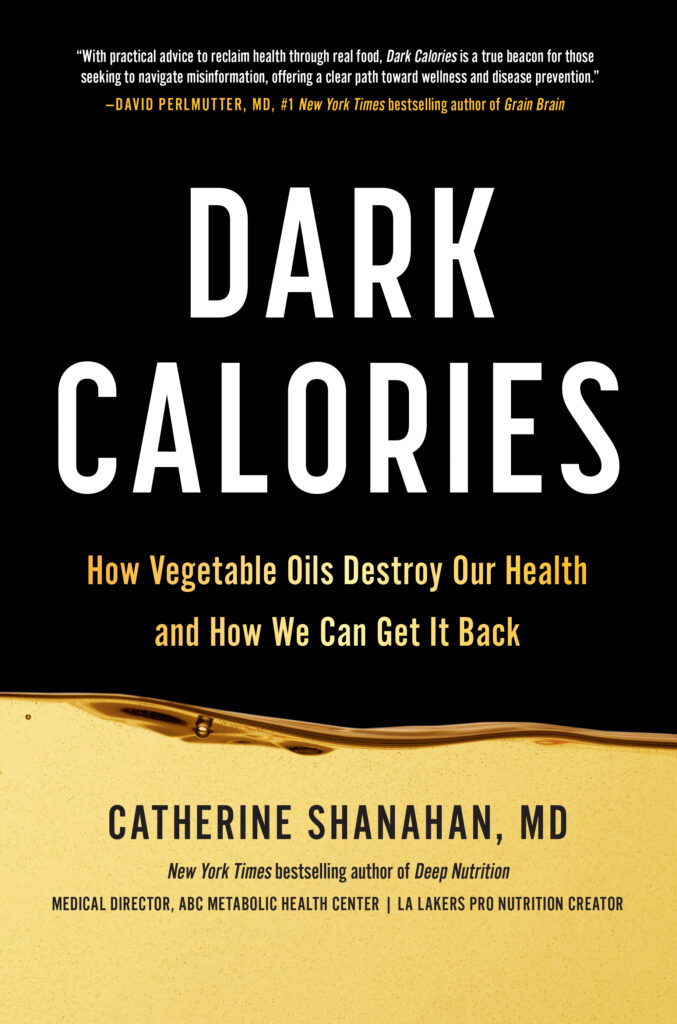vegetable oils are a public health disaster. They deplete antioxidants and promote free radical toxicity, wreaking havoc on our bodies’ cells.
Americans were enticed into buying these oils based on their cholesterol-lowering property, but the idea that cholesterol-lowering is beneficial was pushed on us without solid evidence to support it.
- Chapter 1 - The poison in your pantry
- Chapter 2 - The All-you-can-eat buffet of chronic disease
- chapter 3 - the metabolic problem your doctor can’t see
- chapter 4 - fat bodies, starving brains
- chapter 5 - the truth about cholesterol
- chapter 6 - ancel keys and the dark side of the american heart association
- chapter 7 - the sicker you get, the richer they grow
- chapter 8 - reason for hope
- chapter 9 - how to ditch vegetable oil for good
- chapter 10 - eating to heal
- chapter 11 - the two week challenge: meal planning and simple meals
I really enjoyed chapters 1-4, i learned new information about linolaic acid and PUFAs impact on mitochondrial health and operation. Especially concerning was how long lived these oils are when stored in our fat cells.
These sections are really well cited and I’ve enjoyed looking at the references.
She makes a compelling argument linking the industrial oils to inflammation and tying most modern chronic disease to this inflammation source.
Around chapter 8 she lost me - She argues removal of PUFAs will have a larger health improvement from the western diet then keto. The citations in this part get rather sparse, so this is more of a mechanistic conjecture. I suppose she is trying to appeal to people who find keto unappealing but still want to improve their systemic inflammation.
Chapter 8 again - She also starts making insulin sensitivity claims about jumping into keto that I would need to see some data to back. The whole HOMA-IR decreased so keto harmed these people… is a bit much; it requires further research and examination of the paper. The hypothesis is jumping in cold is bad, so is there a natural recovery? They don’t mention the WFKD had higher weight loss in the 12 week window.
Do people eating a western diet improve their health just removing industrial oils? Yes - Absolutely.
Does eating a whole food diet (edge of the grocery store, single ingredient food, no processed foods, no industrial oils) have a huge impact on health? Yes - 100%
The open question is if a whole food diet with no oil will outperform keto in T2D remission, I’d love to see the studies, but the data isn’t there. In the context of T2D being a condition of carbohydrate intolerance it simply makes sense to me that keto (removing the carbohydrates) is more urgently effective in this scenario
Right now for a person just looking to get healthy my priority list of changes would be:
- 1 - Whole foods
- 2 - Keto
- 3 - No Vegetable Oils/Seed Oils/Industrial Oils
- 4 - No Processed foods
- 5 - Avoid Plastics/Pesticides/etc
Overall, I highly recommend this book for chapters 1-4 at least, its on the normal sites (fmhy) for those without cash.
The author did give a low carb down under talk: https://youtu.be/YbpX41oCi1M - Dr. Cate Shanahan - ‘Practical Lipid Management for LCHF Patients’
If you want a preview of her style.


